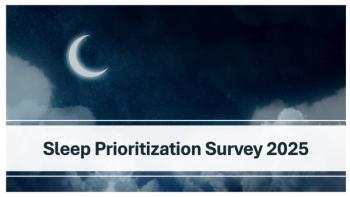
Daytime Napping Linked with Hypertension, Stroke Risk
The new report adds to a growing body of evidence suggesting links between sleep and cardiovascular health.
Many people dream about being able to have the luxury of an afternoon nap, but it turns out that those who frequently get a dose of daytime dozing may actually face a higher risk of cardiovascular disease.
A new study
In the new report, researchers used a British population health database called UK Biobank. The data set includes more than 500,000 people ages 40 and older who volunteered to regularly provide health and lifestyle information, along with blood, urine, and saliva samples, beginning in 2006.
Four times between 2006 and 2019, participants were asked about their sleep and napping habits. Respondents were asked to say how often they took naps during the day, with three possible responses: “never/rarely,” “sometimes,” or “usually.”
Corresponding author E. Wang, MD, PhD, of Xiangya Hospital Central South University, and colleagues wanted to know whether the frequency of a person’s napping might correlate with their heart health. They began with the UK Biobank dataset and then excluded any participant who already had a history of hypertension or stroke.
What remained was a data set of 358,451 people. After a mean follow-up period of 11 years, the investigators compared those napping reports to incidences of first-time hypertension and stroke.
Wang and colleagues found that, compared to those who reported “never/rarely” napping, people who frequently napped during the day had a 12% higher chance of developing hypertension and a 24% higher chance of having a stroke. When broken down by age group, those who were under the age of 60 had a 20% higher risk of hypertension if they napped frequently, compared to those who never napped. Among those over the age of 60, the increased risk was 10%.
The American Heart Association recently included sleep duration as one of
“This study echoes other findings that generally show that taking more naps seems to reflect increased risk for problems with heart health and other issues,” he said.
The exact contours of the relationship between sleep and cardiovascular health are not yet fully understood. One confounding factor is that the more frequent nappers in the Biobank study also tended to have other risk factors for cardiovascular health. The frequent nappers were more likely to be men, have lower educational and income levels, and smoke and drink alcohol regularly. Regular nappers were also more likely to report insomnia or snoring problems.
“This may be because, although taking a nap itself is not harmful, many people who take naps may do so because of poor sleep at night,” Grandner noted. “Poor sleep at night is associated with poorer health, and naps are not enough to make up for that.”
The investigators also conducted a Mendelian randomization, which showed that for each shift from a lower napping category to a more frequent napping category, hypertension risk increased 40%. In other words, going from never napping to sometimes napping brings with it a significant increase in hypertension risk. However, the study found most people—about three-quarters of respondents—stayed in the same napping category through the duration of the study.
The analysis also suggested a genetic factor; people with genetic risk factors for heart disease tended to take more naps.
The investigators noted a number of limitations to their study. Among them, the fact that it was based on self-reports, and the fact that the analysis was based solely on the frequency of naps and not on the duration of those naps.
Still, the authors concluded that the data show napping and sleep health generally could be important factors when evaluating the cardiovascular risk of individual patients.
Newsletter
Get the latest industry news, event updates, and more from Managed healthcare Executive.























